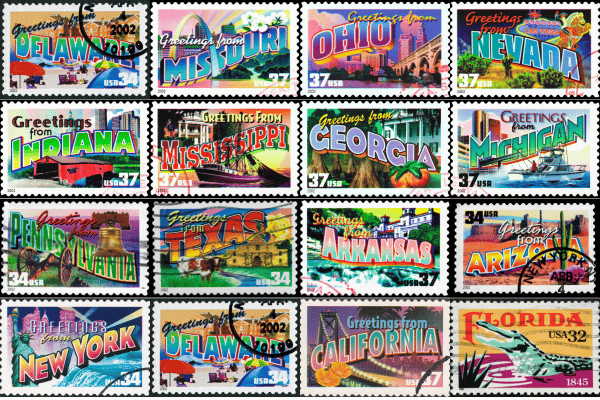
Boost Suite
LLC Formation Made Easy for Your Business
Start and manage your business effortlessly with Boost Suite. From LLC formation to compliance, we guide you at every step. Discover our tailored LLC services designed to support entrepreneurs like you—learn more about our approach.

Boost Suite
Register Your LLC Online with Ease
Forming your LLC online doesn’t have to be complicated. Whether you’re launching a new business or expanding an existing one, finding the right platform is key to a smooth process. Many entrepreneurs wonder, “What are the best online legal services to start my LLC?” At BoostSuite, we’ve done the research for you. Our trusted resources connect you with reliable platforms that offer step-by-step guidance, tailored solutions, and expert support, so you can focus on growing your business.

Best Overall LLC Service
If you value personalized customer service and strong privacy protections, Northwest Registered Agent reviews show why this company is a top choice. Entrepreneurs seeking compliance support often rely on their reliable and efficient services.

Best Essentials LLC Service
ZenBusiness is a leader in affordable LLC formation, offering simple packages that cater to entrepreneurs. Known for excellent customer service and user-friendly tools, ZenBusiness reviews highlight why it’s a trusted choice for starting a business.

Best for online legal services
Rocket Lawyer simplifies LLC formation with its comprehensive suite of legal tools. Entrepreneurs looking for expert guidance frequently turn to this platform. Our detailed Rocket Lawyer reviews explain how their services meet diverse business needs.

Best Premium LLC Service
Harbor Compliance specializes in tailored compliance solutions and support for LLC formation. Entrepreneurs rely on this platform for licensing and registered agent services. To understand how they can help your business stay compliant, read our detailed Harbor Compliance reviews for valuable insights.
Affordable and Reliable LLC Services
Defining a clear purpose and accessing the right support are essential when forming your LLC. BoostSuite provides resources that simplify every step, from setting your goals to managing compliance. A strong business purpose for LLC helps lay the foundation for success, while affordable services ensure you stay on budget. With our trusted tools, you’ll have everything you need to build and grow your business with confidence.

How to Register Your LLC Online in 4 Simple Steps
Forming an LLC online is easy when you have the right guidance. From naming your business to filing essential documents, BoostSuite simplifies every step. If you’re wondering how to create an LLC, our detailed resources and expert tools provide the support you need. Whether it’s understanding state requirements, selecting a registered agent, or drafting an operating agreement, we ensure your LLC is set up correctly so you can focus on growing your business.
Choose a Unique Name for Your LLC
Choosing the perfect name is an exciting first step in creating your LLC. Your business name should reflect your brand while complying with state requirements. It’s important to verify that the name is unique and available in your state before filing. For inspiration or to learn about naming rules, explore our guide on LLC names and get started today.
To speed up brainstorming, you can use our AI business name generator to turn your initial ideas into a shortlist of brandable names in seconds before you file with your state.
Appoint a Registered Agent
Every LLC requires a registered agent to receive legal documents and official notices on behalf of the business. This agent must have a physical address in the state where your LLC is registered. To simplify the process and find a reliable provider, check out our list of national registered agent services to ensure compliance and peace of mind.
File Your LLC Formation Documents
Filing the Articles of Organization (or Certificate of Formation) with your state’s Secretary of State officially establishes your LLC. These documents include essential details like your business name and registered agent. Some states offer online filing, while others require mail submissions. BoostSuite ensures your paperwork is accurate and compliant, helping you save time and avoid errors.
Draft an Operating Agreement
An operating agreement outlines the ownership structure, roles, and responsibilities of LLC members. While not always mandatory, it’s a crucial document for preventing misunderstandings and ensuring smooth operations. A well-drafted agreement protects your business and simplifies decision-making. If you need help creating one, explore our recommended operating agreement template to get started.
Choose the Best State for Your LLC
Selecting the right state to form your LLC is a critical decision that affects your taxes, compliance requirements, and business operations. Each state offers unique advantages, and BoostSuite provides the guidance you need to make an informed choice. Whether you’re evaluating tax benefits or market opportunities, explore our resources to find the best state to form LLC and ensure your business starts on the right track.
Texas LLC
Texas is known for its low costs, favorable tax policies, and straightforward LLC filing process. It’s a top choice for entrepreneurs seeking a business-friendly environment. Learn more about the best LLC service in Texas and how it can support your business goals.
Florida LLC
Florida offers attractive tax benefits and minimal regulations, making it ideal for small business owners. Its business-friendly policies ensure a smooth LLC formation process. Discover everything you need to know about creating an LLC in Florida and take the next step toward succes
California LLC
California provides unmatched market opportunities and access to a thriving economy. While its regulations can be more complex, the rewards often outweigh the challenges. Learn how LLC formation in California can unlock opportunities for your business.

Find the Best Registered Agent for Your LLC
Choosing the right registered agent is crucial for staying compliant and managing your LLC effectively. From ensuring a valid registered agent address to exploring top-rated options in Florida, New York, Delaware, and California, find services tailored to your business needs.
Florida Registered Agent
Discover the most reliable Florida registered agent services to ensure compliance and peace of mind.
New York Registered Agent
Explore trusted New York registered agent options designed to simplify your LLC’s compliance process.
Delaware Registered Agent
Find top-rated Delaware registered agent providers for efficient and seamless LLC management.
California Registered Agent
Discover the best California registered agent services tailored to your business needs.
Latest LLC Guides and Business Tips for Entrepreneurs
Explore our latest LLC guides and business insights to stay ahead in your entrepreneurial journey. From compliance strategies to operational tips, our resources help you navigate the complexities of LLC formation and management. Whether you’re starting your first LLC or refining your existing business, discover expert advice and actionable tips to simplify processes, reduce costs, and achieve your goals with confidence.
[{"id":37515,"link":"https:\/\/boostsuite.com\/llc-duration\/","name":"llc-duration","thumbnail":{"url":"https:\/\/boostsuite.com\/wp-content\/uploads\/2025\/12\/how-long-does-an-llc-last-boost-suite.png","alt":"Does an LLC ever Expire? Here's what to know"},"title":"How Long Does an LLC Last? (Perpetual Duration, Expiration, and Renewal Explained)","postMeta":[],"author":{"name":"Aaron Kra","link":"https:\/\/boostsuite.com\/author\/aaron\/"},"date":"Dec 8, 2025","dateGMT":"2025-12-08 07:54:35","modifiedDate":"2025-12-10 03:36:43","modifiedDateGMT":"2025-12-10 07:36:43","commentCount":"0","commentStatus":"open","categories":{"coma":"<a href=\"https:\/\/boostsuite.com\/category\/llc\/\" rel=\"category tag\">LLC<\/a>","space":"<a href=\"https:\/\/boostsuite.com\/category\/llc\/\" rel=\"category tag\">LLC<\/a>"},"taxonomies":{"post_tag":"","author":"<a href='https:\/\/boostsuite.com\/author\/aaron\/' rel='author'>Aaron Kra<\/a>"},"readTime":{"min":18,"sec":24},"status":"publish","excerpt":"Learn how to correctly write \u201cLLC\u201d after your business name: comma or no comma, periods or not, and when to use the full legal name vs your DBA."},{"id":37370,"link":"https:\/\/boostsuite.com\/ceridian-dayforce-payroll-reviews\/","name":"ceridian-dayforce-payroll-reviews","thumbnail":{"url":"https:\/\/boostsuite.com\/wp-content\/uploads\/2025\/12\/ceridian-dayforce-reviews-boost-suite.png","alt":"Ceridian Dayforce payroll review 2025"},"title":"Ceridian Dayforce Payroll Reviews 2025: Pricing, Features, Pros & Cons","postMeta":[],"author":{"name":"Aaron Kra","link":"https:\/\/boostsuite.com\/author\/aaron\/"},"date":"Dec 2, 2025","dateGMT":"2025-12-02 08:11:38","modifiedDate":"2025-12-02 21:04:17","modifiedDateGMT":"2025-12-03 01:04:17","commentCount":"0","commentStatus":"open","categories":{"coma":"<a href=\"https:\/\/boostsuite.com\/category\/llc\/\" rel=\"category tag\">LLC<\/a>","space":"<a href=\"https:\/\/boostsuite.com\/category\/llc\/\" rel=\"category tag\">LLC<\/a>"},"taxonomies":{"post_tag":"","author":"<a href='https:\/\/boostsuite.com\/author\/aaron\/' rel='author'>Aaron Kra<\/a>"},"readTime":{"min":15,"sec":39},"status":"publish","excerpt":"Unbiased 2025 Ceridian Dayforce Payroll review covering pricing, key HCM features, pros and cons, and real user feedback to see if Dayforce fits your business."},{"id":37366,"link":"https:\/\/boostsuite.com\/paycom-pricing\/","name":"paycom-pricing","thumbnail":{"url":"https:\/\/boostsuite.com\/wp-content\/uploads\/2025\/12\/paycom-pricing-boost-suite.png","alt":"Paycom pricing 2025"},"title":"Paycom Pricing in 2025 - Cost per Employee, Monthly Fees, and Hidden Charges Explained","postMeta":[],"author":{"name":"Aaron Kra","link":"https:\/\/boostsuite.com\/author\/aaron\/"},"date":"Dec 2, 2025","dateGMT":"2025-12-02 07:44:18","modifiedDate":"2025-12-02 21:05:59","modifiedDateGMT":"2025-12-03 01:05:59","commentCount":"0","commentStatus":"open","categories":{"coma":"<a href=\"https:\/\/boostsuite.com\/category\/llc\/\" rel=\"category tag\">LLC<\/a>","space":"<a href=\"https:\/\/boostsuite.com\/category\/llc\/\" rel=\"category tag\">LLC<\/a>"},"taxonomies":{"post_tag":"","author":"<a href='https:\/\/boostsuite.com\/author\/aaron\/' rel='author'>Aaron Kra<\/a>"},"readTime":{"min":14,"sec":18},"status":"publish","excerpt":"See how Paycom pricing works in 2025, with cost-per-employee ranges, examples, setup fees, and tips to keep your bill lower than other HR and payroll tools."},{"id":37190,"link":"https:\/\/boostsuite.com\/dont-file-taxes-no-owe\/","name":"dont-file-taxes-no-owe","thumbnail":{"url":"https:\/\/boostsuite.com\/wp-content\/uploads\/2025\/11\/didnt-file-dont-owe-boost-suite.png","alt":"Can an LLC Be an Independent Contractor?"},"title":"What Happens If You Don\u2019t File Your Taxes but Don\u2019t Owe Anything?","postMeta":[],"author":{"name":"Aaron Kra","link":"https:\/\/boostsuite.com\/author\/aaron\/"},"date":"Nov 25, 2025","dateGMT":"2025-11-25 07:14:20","modifiedDate":"2025-11-26 23:55:28","modifiedDateGMT":"2025-11-27 03:55:28","commentCount":"0","commentStatus":"open","categories":{"coma":"<a href=\"https:\/\/boostsuite.com\/category\/llc\/\" rel=\"category tag\">LLC<\/a>","space":"<a href=\"https:\/\/boostsuite.com\/category\/llc\/\" rel=\"category tag\">LLC<\/a>"},"taxonomies":{"post_tag":"","author":"<a href='https:\/\/boostsuite.com\/author\/aaron\/' rel='author'>Aaron Kra<\/a>"},"readTime":{"min":17,"sec":54},"status":"publish","excerpt":"Learn when you still have to file, what you lose by not filing, and how to fix missed tax returns even if you\u2019re sure you don\u2019t owe the IRS anything."},{"id":37188,"link":"https:\/\/boostsuite.com\/llc-independent-contractor\/","name":"llc-independent-contractor","thumbnail":{"url":"https:\/\/boostsuite.com\/wp-content\/uploads\/2025\/11\/can-llc-be-a-contractor-boost-suite.png","alt":"Can an LLC Be an Independent Contractor?"},"title":"Can an LLC Be an Independent Contractor?","postMeta":[],"author":{"name":"Aaron Kra","link":"https:\/\/boostsuite.com\/author\/aaron\/"},"date":"Nov 25, 2025","dateGMT":"2025-11-25 07:14:17","modifiedDate":"2025-11-25 03:14:21","modifiedDateGMT":"2025-11-25 07:14:21","commentCount":"0","commentStatus":"open","categories":{"coma":"<a href=\"https:\/\/boostsuite.com\/category\/llc\/\" rel=\"category tag\">LLC<\/a>","space":"<a href=\"https:\/\/boostsuite.com\/category\/llc\/\" rel=\"category tag\">LLC<\/a>"},"taxonomies":{"post_tag":"","author":"<a href='https:\/\/boostsuite.com\/author\/aaron\/' rel='author'>Aaron Kra<\/a>"},"readTime":{"min":17,"sec":37},"status":"publish","excerpt":"See how an LLC can work as an independent contractor, when clients should use 1099 vs W-2, and what an LLC really does for your taxes and liability."},{"id":37079,"link":"https:\/\/boostsuite.com\/llc-protect-business-name\/","name":"llc-protect-business-name","thumbnail":{"url":"https:\/\/boostsuite.com\/wp-content\/uploads\/2025\/11\/LLC-name-protection-boost-suite.png","alt":"How Your Business Name and Personal Assets Are Really Protected"},"title":"Does an LLC Protect Your Business Name and Personal Assets? LLC vs Trademark Guide","postMeta":[],"author":{"name":"Aaron Kra","link":"https:\/\/boostsuite.com\/author\/aaron\/"},"date":"Nov 21, 2025","dateGMT":"2025-11-21 06:47:06","modifiedDate":"2025-11-21 02:50:21","modifiedDateGMT":"2025-11-21 06:50:21","commentCount":"0","commentStatus":"open","categories":{"coma":"<a href=\"https:\/\/boostsuite.com\/category\/llc\/\" rel=\"category tag\">LLC<\/a>","space":"<a href=\"https:\/\/boostsuite.com\/category\/llc\/\" rel=\"category tag\">LLC<\/a>"},"taxonomies":{"post_tag":"","author":"<a href='https:\/\/boostsuite.com\/author\/aaron\/' rel='author'>Aaron Kra<\/a>"},"readTime":{"min":20,"sec":32},"status":"publish","excerpt":"Does an LLC protect your business name and personal assets? See how LLC vs trademark protection really works, what each covers, and when to register a trademark."}]

